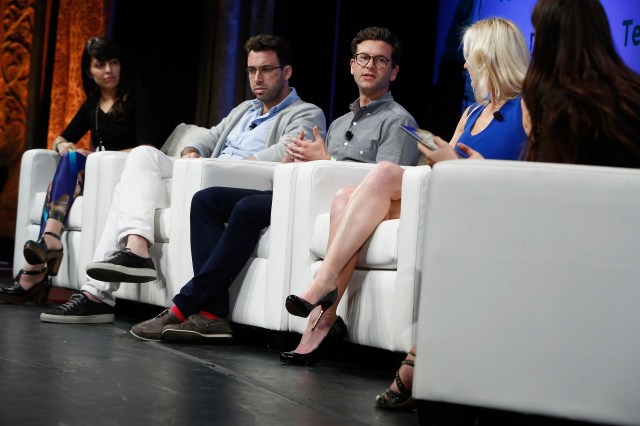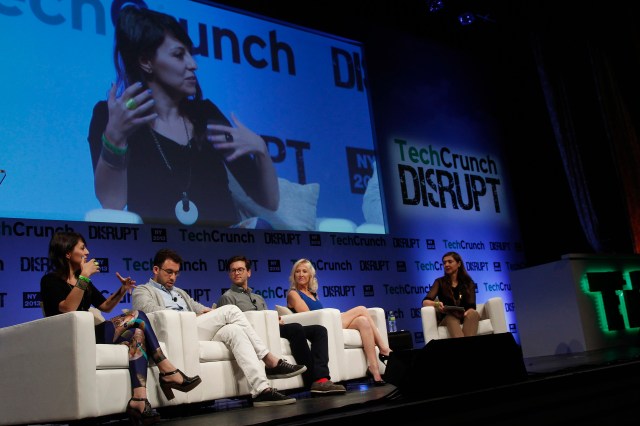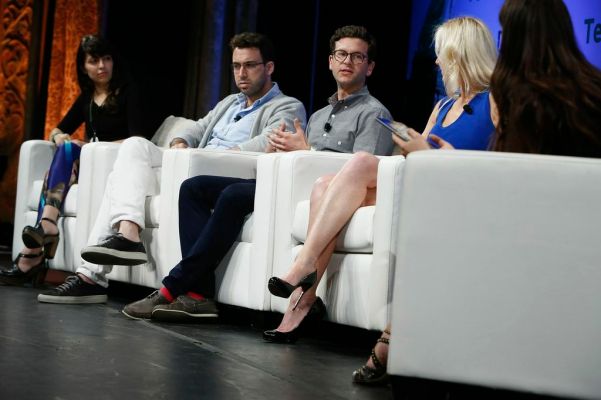Dave Gilboa, co-founder at Warby Parker, one of the e-commerce startups that has “made it” so to speak, shared some stories from the startup’s early days on an afternoon panel at TechCrunch Disrupt NY 2013, where he was joined by Everlane’s Michael Preysman, Nasty Gal’s Deborah Benton, Wanelo’s Deena Varshavkaya and moderated by TechCrunch co-editor Alexia Tsotsis. Even though Warby Parker is now moving into physical retail stores, running TV ads, and raising large rounds of funding from American Express and J. Crew chief executive Millard S. Drexler, it hasn’t always been that easy for them, as it turns out.
In an amusing story which could go a long way to make other founders feel better about their own disastrous launches, Gilboa talked about an incident that took place after the company debuted its try on at home program.
“We launched with these features in GQ and Vogue, and within 48 hours we were stocked out of all our home try on inventory,” says Gilboa. “We had a waitlist of 20,000 customers waiting for home try ons,” he said. “We kind of freaked out and didn’t know what to do.”


The company had also taken thousands of orders they couldn’t fulfill before opening the wait list, and now people were even phoning in, asking where they could go to try on frames. But Warby Parker had launched without having a retail store presence, having bet big on being an online-only company.
“So we said, well, the store’s my apartment, but come on over,” Gilboa said with a smile. “We had strangers from all over Philly [where Warby Parker was based at the time] coming into our apartment, where we laid out the glasses on the table,” he said.
Gilboa said they found that customers loved that experience of meeting the people behind the brand, and ended up selling at least one pair to everyone who stopped by. That experience of meeting the customers face to face eventually led the company to the path it’s on today, where expansion into physical stores are now a part of the equation. Its flagship store in NYC is designed to look like a classic library — the New York Public Library — and is filled with brass library lamps, rolling ladders and musty books.
Today, the company has plans for stores in Boston, runs events and pop-up shops to introduce customers to the brand, and has partnered with the Standard Hotel Group, to sell Warby Parker frames.
But of course, Tsotsis wanted to know about the one partnership that everyone’s been buzzing about lately: has Warby Parker partnered with Google on Google Glass?
“There have been bunch of rumors floating around that I can’t really comment on,” replied Gilboa, in a non-denial that sounded (at least to this audience’s hopeful ears) a lot like a “yes.” Instead, he said that Warby Parker looks for innovative partnerships which are aligned with its brand.
“Is Google Glass one of them?”
“I can’t comment on that.”
